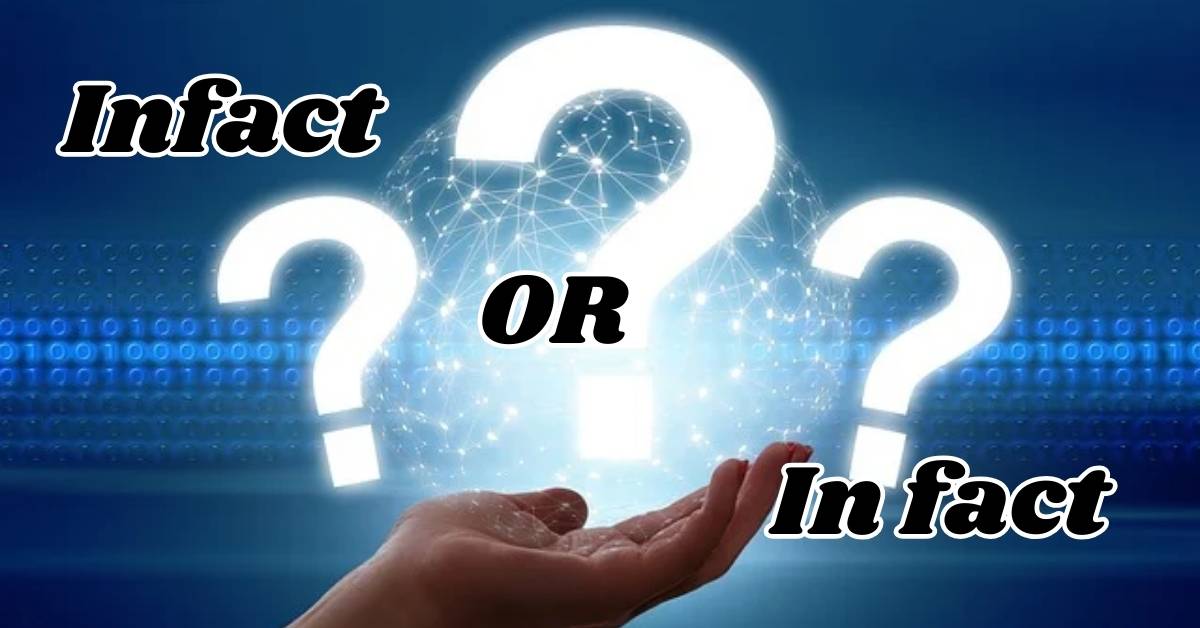Infact or In Fact this is a question that often puzzles writers and speakers alike. The confusion arises because “infact” is a common misspelling of the correct phrase, “in fact.” While they may sound similar when spoken, their meanings and usage differ significantly.
Only one of these is grammatically correct and widely accepted in English writing. Understanding this distinction is crucial for maintaining linguistic accuracy in both formal and informal communication.
Incorrect usage, such as writing “infact,” can lead to misunderstandings and reduce your professional credibility. This article will help you master the correct usage of “in fact” and avoid common spelling mistakes in your writing.
Understanding Infact or In Fact
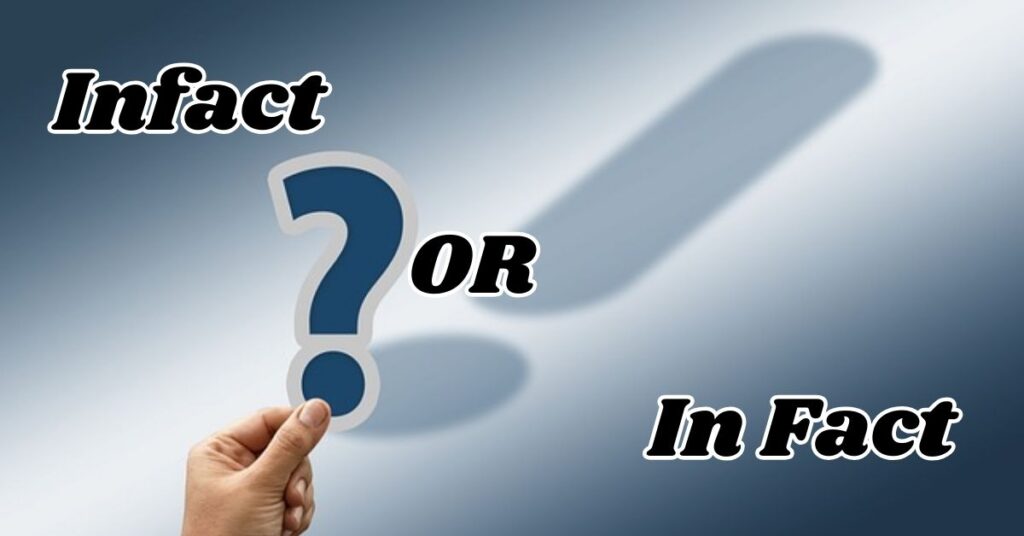
“Infact” is not a recognized word in the English language. It is simply a typographical error that many people make. The correct phrase, “in fact,” serves as a conjunctive adverb used to emphasize a statement or provide additional information.
For instance, you might say, “I love reading; in fact, I read every day.” Here, “in fact” strengthens the statement by adding emphasis.
The confusion often arises due to the way people pronounce the phrase. When spoken quickly, “in fact” can sound like one word, leading some to mistakenly write it as “infact.” This common mistake highlights the importance of grammar rules and careful proofreading in professional writing and academic contexts.
Origins of the In Fact
The phrase “in fact” comes from the Latin word “factum,” meaning “a thing done.” Initially, “fact” referred to an action, but by the mid-16th century, it evolved to mean “a true event.”
The construction “in fact” emphasizes reality, suggesting that what follows is based on actual circumstances or truths, reinforcing its significance in communication.
Infact: Definition and Usage
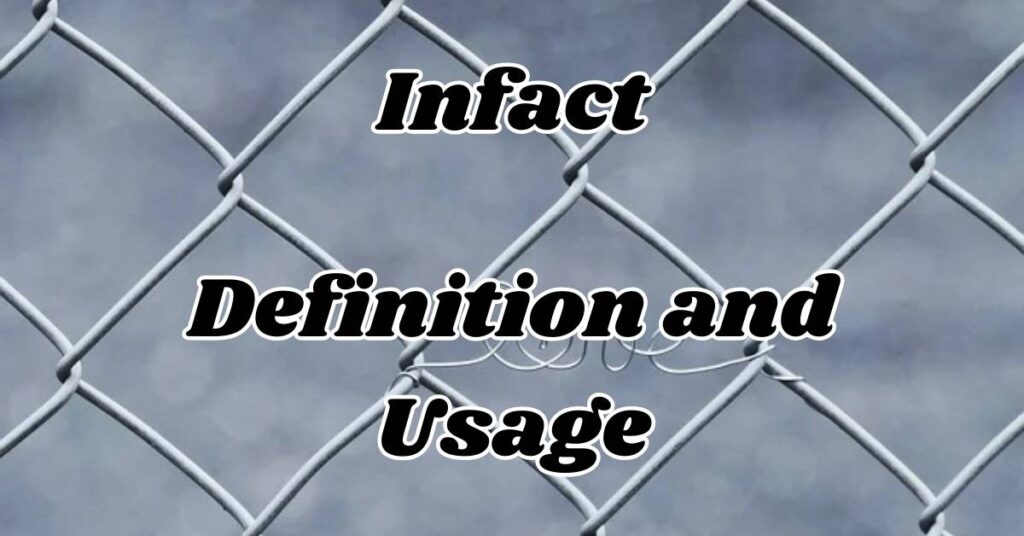
“Infact” is simply incorrect. It does not have a definition or recognized usage in standard English. Using “infact” can undermine your credibility and lead to misunderstandings in both casual conversations and formal writing.
For example, if someone writes, “Infact, I finished my project early,” it raises questions about their attention to detail. Instead, they should say, “In fact, I finished my project early.” This small change not only corrects the spelling but also enhances clarity and professionalism.
Infact Meanings
While “infact” has no meaning in English, its incorrect usage can lead to confusion. Misusing terms can impact how others perceive your language competence. In contrast, using “in fact” correctly adds weight to your statements and showcases your understanding of linguistic features.
Why “Infact” Is a Common Mistake
The prevalence of “infact” as a misspelling can be attributed to several factors. First, many people write quickly without paying close attention to spelling. Second, the pronunciation of “in fact” can lead individuals to mistakenly combine the words into one.
This highlights the need for effective proofreading techniques and grammar checking tools.
Additionally, as we engage with various forms of media such as social networks or chatbots misspellings like “infact” can spread rapidly. This reinforces the importance of maintaining high standards in written communication.
Infact Usage
“Infact” is a common misspelling of the correct phrase “in fact.” Using “infact” in writing can lead to confusion and undermine clarity. This error often occurs when people write quickly or mishear the phrase.
To maintain professionalism and ensure effective communication, it’s essential to use “in fact” correctly, as it emphasizes statements and provides important context in both casual and formal settings.
In Fact: Definition and Usage
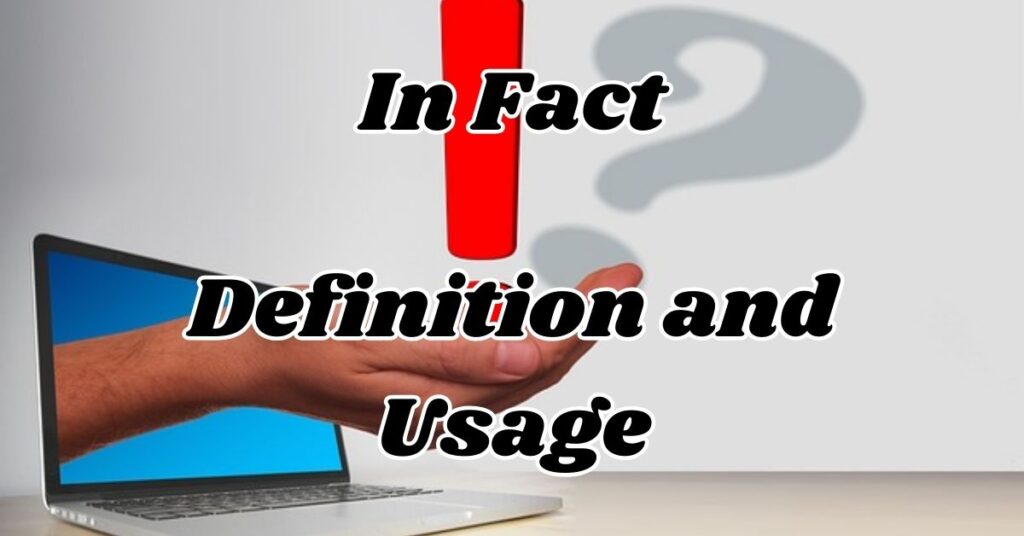
“In fact” serves as an important tool for emphasizing statements or clarifying information in conversation and writing. It allows speakers to assert their points more strongly and provides listeners with additional context.
For example: “Many people think learning a new language is difficult; in fact, it can be quite enjoyable.” Here, “in fact” reinforces the statement by presenting an alternative perspective.
In Fact Meanings
The phrase “in fact” serves to emphasize a statement or clarify information. It indicates that what follows is based on reality or truth, often contradicting a previous assumption. For example, saying, “Many think studying is boring; in fact, it can be quite enjoyable,” highlights the contrast between perception and reality.
This phrase enriches communication by providing additional context and reinforcing the speaker’s point, making it a valuable tool in both writing and conversation.
“In Fact” Mean in Different Contexts
In different contexts, “in fact” may imply various nuances:
- In academic writing: It emphasizes research findings.
- In casual conversation: It strengthens personal anecdotes.
- In persuasive writing: It supports arguments with evidence.
Understanding these contextual meanings helps improve your language proficiency.
Usage of “In Fact” in Sentences
Here are a few examples demonstrating the correct usage of “in fact”:
- Many believe that cats are aloof; in fact, they are very affectionate.
- The weather was terrible last week; in fact, it rained every day.
- She’s an expert in her field; in fact, she has published several papers.
- He didn’t just pass the exam; in fact, he scored the highest in his class.
- They thought they would lose; in fact, they won by a large margin.
These examples illustrate how “in fact” adds emphasis and clarity to statements.
Table: Usage Comparison of “In Fact”
| Position in Sentence | Example | Punctuation |
| Beginning | In fact, I enjoy reading books every day. | Comma needed |
| End | I enjoy reading books every day, in fact. | No comma |
This table highlights how punctuation plays a role when using “in fact.”
Synonyms of In Fact
Here are a few synonyms for “in fact”:
- Actually
- Indeed
- Truly
- Certainly
- As a matter of fact
- In reality
- Really
- To be sure
- Undoubtedly
- Clearly
Using these synonyms can add variety to your writing while maintaining emphasis.
Side by Side Comparison
To further clarify the difference between “infact” and “in fact,” consider this comparison:
| Term | Correctness | Usage |
| Infact | Incorrect | Not used in English |
| In Fact | Correct | Used to emphasize or clarify |
This comparison highlights why it’s essential to use “in fact” correctly for effective communication.
Everyday Usage Examples
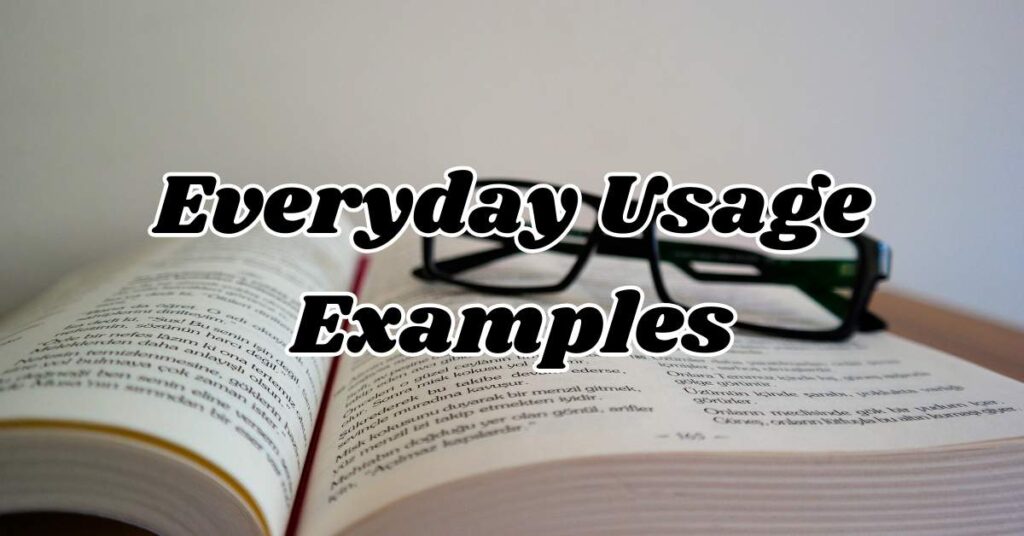
In everyday conversations, people often use “in fact” to emphasize points or clarify misunderstandings. For instance:
- “I love coffee; in fact, I drink it every morning.”
- “He’s not just good at math; in fact, he’s a math champion.”
These examples show how “in fact” enhances dialogue by providing emphasis.
Infact, an Example of Literature
In literature, the incorrect usage of “infact” can detract from the overall quality of the writing. For instance, a sentence like, “The hero was brave infact,” fails to convey the intended meaning.
This misspelling not only confuses readers but also undermines the author’s credibility. Such errors highlight the importance of careful proofreading and attention to detail in literary works, ensuring that the message remains strong and effective.
In Fact Example of Literature
Conversely, a well-constructed example using “in fact” can enhance a narrative. Consider this sentence: “The protagonist faced numerous challenges; in fact, each obstacle made her stronger.”
Here, “in fact” emphasizes the character’s growth and resilience, providing depth to the story. This usage effectively connects ideas and reinforces the theme, showcasing how proper language can elevate literary expression and engage readers more fully.
Real-Life Usage of “In Fact” in Conversations
In real-life conversations, people often use “in fact” when discussing opinions or sharing experiences:
- “I thought I wouldn’t enjoy hiking; in fact, I loved it!”
- “Many think studying is boring; in fact, it can be fascinating!”
These examples demonstrate how “in fact” enriches dialogue by adding emphasis and clarity.
Common Misconceptions About “In Fact”
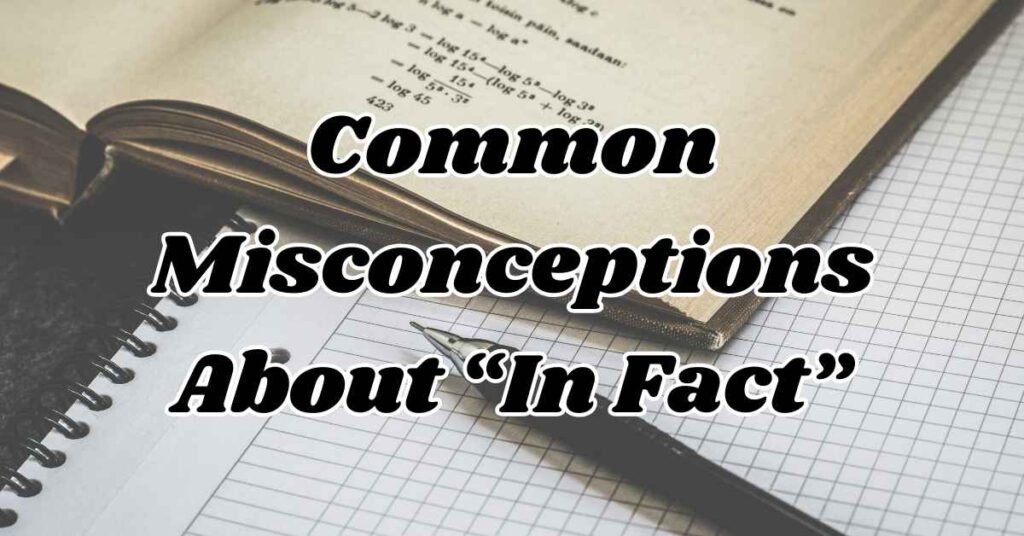
Many people hold misconceptions about the phrase “in fact,” often confusing it with the incorrect spelling “infact.” One common belief is that both terms can be used interchangeably, but only “in fact” is grammatically correct.
Additionally, some think that using “in fact” makes writing overly formal or stiff; however, it enhances clarity and emphasis in both spoken and written communication.
Another misconception is that “in fact” is redundant, but it serves a crucial role in reinforcing statements and providing context. Understanding these misconceptions can improve your communication skills and ensure more effective expression in your writing.
Practical Tips for Correct Usage
To ensure you use “in fact” correctly:
- Always spell it as two separate words: “in fact.”
- Use a comma when starting a sentence with it.
- Avoid using it excessively; moderation is key.
- Familiarize yourself with synonyms for variety.
- Practice using it correctly in conversations to build confidence.
By following these tips, you will enhance your linguistic accuracy and overall communication skills.
More Article: Homogenous or Homogeneous: What’s the Difference?
FAQs: Infact or In Fact
What is correct, in fact or infact?
The correct phrase is “in fact,” as “infact” is a common misspelling.
Is “in fact” one or two words?
“In fact” is written as two separate words.
What is in fact grammatically?
“In fact” is a conjunctive adverb used to emphasize or clarify a statement.
Does infact have a hyphen?
No, “infact” does not have a hyphen; it is simply an incorrect spelling of “in fact.”
Conclusion
Understanding the difference between “infact or in fact” is essential for effective communication. The correct phrase, “in fact,” serves to emphasize statements and clarify information, enhancing both spoken and written expression.
Avoiding the common misspelling “infact” not only improves your linguistic accuracy but also boosts your professional credibility. By mastering the proper usage of this phrase, you can communicate more clearly and confidently, ensuring that your message resonates with your audience in various contexts.
Related Post: What Kind Of vs What Kinds Of: What’s the Difference?

